Indigenous culture is everyone’s culture
Indigenous culture is everyone’s culture
Our new network partner, Five Bridges has recently come on board to deliver Workforce Australia employment services to the Indigenous communities in Beenleigh, Browns Plains and Woodridge. In honour of NAIDOC Week 2022, we spoke to Jessica Taylor, a proud Yuwaalaraay woman and CEO of Five Bridges, to find out about how they support Aboriginal and Torres Strait Islanders.
- Stronger together – Five Bridges & CoAct
- The biggest challenges for Indigenous jobseekers
- We’re all about building employment opportunities
- How Five Bridges is different to other employment providers
- A NAIDOC Week message from Five Bridges
Tell us about Five Bridges and your relationship with CoAct?
Five Bridges is an established not-for-profit organisation based in Queensland. Our focus is on Aboriginal and Torres Strait Islander communities.
Five Bridges is Indigenous controlled organisation with myself as CEO and our Board of Directors is majority Indigenous, so we have a strong strategy and governance that looks after the wellbeing of the communities we serve.
We’ve recently partnered with CoAct Connect to deliver Workforce Australia. Up until now we’ve been a team of 15. Our headcount is growing significantly as we prepare to deliver these expanded and intensive employment services. Our sister organization Indigenous Workstars will be delivering Workforce Australia services to Indigenous jobseekers in Gladstone, Rockhampton and Woorabinda.
What do you see as the biggest challenges for Indigenous jobseekers?
A big challenge is the responsibility people have within their community and employers’ understanding of this. Indigenous culture is unique in that people support an extended community network, not just immediate family members. They need to care for and provide support for many others in their community and this takes time and resources. Employers don’t always know this and can be unsympathetic to an employee taking time off. They often interpret absence at work as lack of commitment to their role.
Indigenous jobseekers are also hesitant to sell themselves in an interview. When asked ‘Why are you the best person for this job’, they find it difficult to put forward their strengths. It’s something that’s just not part of their culture. That’s where we come in, we can talk to employers on their behalf.
Another common barrier is rural transport and getting a driver’s licence.
Can you unpack what you’re doing to increase Indigenous employment opportunities?
- We deliver Skilling Queenslanders for Work programs across the state. These programs help the long-term unemployed get the skills they need to find a job and hold onto it. We’re able to help both Indigenous and non-Indigenous jobseekers through this initiative.
- We also work with Murri Courts to support Aboriginal and Torres Strait Islanders in contact with the Justice system in Brisbane, Ipswich and Maroochydore. We also provide accommodation and services to Aboriginal and Torres Strait Islander men leaving custody by providing support and guidance for reintegration back into the community at our Ipswich Residential House.This often involves setting individuals up with a bank account, signing them up to NDIS or connecting them with specialist services for drug and alcohol rehabilitation. We also help them reconnect with family and culture.Many of these people have never really had a hand-up, so it’s valuable to be able to provide that support from the community. Community Justice Groups and elders get involved in cultural mentorship and yarning. We link in with their case management, referrals and journey back to work.The programs can be from one week to 12 weeks. From time-to-time, however, we may offer support for 12 months. With our support, reoffending is considerably reduced.
- Another program we offer is for Aboriginal and Torres Strait Islander women and their children. It’s through Murri Sisters and supports those who have experienced domestic and family violence.
How’s your offer different to other employment services providers?
We make sure we understand a person’s journey in life before trying to find solutions. Why are they unemployed? Why did they offend? What’s their story?
I think we have a cultural and holistic view of our customers that other providers don’t have. Our partnerships with community justice groups, which are made up of elders and respected persons from those communities, link us into valuable yarning circles and activities. These supports help break down some of the barriers that might be stopping someone from gaining employment.
These groups also provide someone with an individual from their community who checks in with them and supports them. This helps them comply with employment and legal conditions or other requirements.
How do you work with employers?
We talk to employers about how much they have to gain when they employ an Indigenous person.
Sometimes we find that if someone is having some issues at work, we’ll need to talk to their employer. It may be there were some insensitive comments that the employer didn’t realise were inappropriate – about someone’s family, community, body language or culture. We talk to them about those kinds of things, in an informal way, letting them know the impact their comments or behaviour might have made on an individual.
There’s no judgement from us – we call it education from a caring place.
What would you like your legacy to be?
We want to limit and reduce the underlying issues Indigenous individuals have which lead to over representation in incarceration, suicide, unemployment, poor health and lower life expectancies (Closing the gap targets). Our purpose is to provide a range of culturally sound activities and initiatives that build capacity, supporting the social norms and behaviors that constitute a positive, proud and responsible Indigenous community.
Aboriginal and Torres Strait Islanders have been continually pushed down and many feel “What’s the point of participating anymore? I’ve got nothing to give, or no one cares”. We advocate for First Nations people and social justice.
Personally, I have experienced the loss of a younger Brother to suicide. He was dealing with many challenges that are so common amongst Aboriginal men. It’s not right that people like him should slip through the cracks.
Why is NAIDOC Week important to you?
It’s about sharing Indigenous culture, which is everyone’s culture. It’s not a culture that’s just for you, or us, or them. It’s Australia’s culture. NAIDOC Week is about continuing on our pathway to understanding and togetherness.
What’s your message to others this NAIDOC week given this year’s theme – Get Up! Stand Up! Show Up!
To everyone – Keep standing up and being resilient.
To our non-Indigenous brothers and sisters – Continue to be advocates standing beside us and helping us along the way. We’re getting there and every year we draw closer. Let’s continue on the journey.
Find out more about NAIDOC Week
Find out more about Workforce Australia
Find out more about Five Bridges


Post categories
- Employers (20)
- Job seeker tips (172)
- News (56)
- Real stories (144)
- Referral partners (1)







